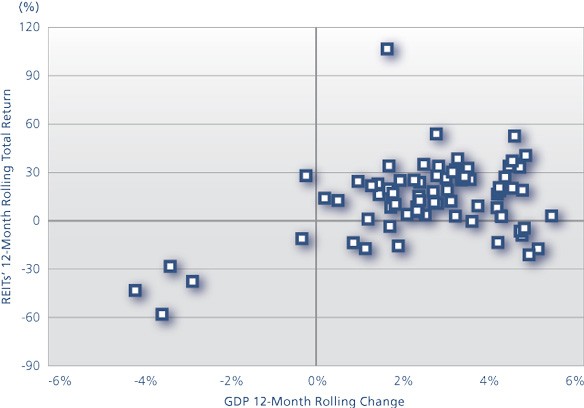Investing in REITs_2
Post on: 9 Июнь, 2015 No Comment

Consider REITs instead of more hands-on real estate investments.
Investing in real estate is a topic we’ve covered extensively because it’s a great way to turn a profit. However, real estate investments like rentals, house flipping and raw land, are labour intensive. For a more-hands off approach to real estate investment, we suggest an REIT—Real Estate Investment Trust.
What is an REIT
An REIT is a company that owns commercial or residential real estate properties. REITs are traded on major exchanges in public and private forms. In Canada, REITs were first established in 1993. An REIT must be configured as a trust and and the company is not taxed if they distribute their net taxable incomes to shareholders. The 2007 budget passed by the Conservative government ruled that REITs be excluded from the income tax legislation. Furthermore, in 2010 the Department of Finance that “Qualifying REITs” are exempt from the SIFT tax, (specified investment flow-through), that as of January 1, 2011 all publicly traded income trusts and partnerships are required to pay. A “Qualifying REIT” is an REIT that meets the following criteria:
- Property test
- 90% passive revenue test
- 75% real property revenue test
- Qualifying property value test
- Publicly traded test.

For a full definition of each criteria visit KPMG.com .
Benefits of REITs
Other than being a hands-off real estate investment, REITs also have limited liability. This means that a person’s financial liability is limited to a fixed sum. This is usually the value of a person’s investment in a company or partnership. If the company or partnership is sued, the shareholder is not personally liable, nor is the shareholder liable for the company’s debts.
REITs in general also provide a large dividend yield. Yields average between 0.60 cents and over $1 per unit. [Source: Globe and Mail ]
Investment is liquid. It can be bought and sold on the stock market, in contrast to the physical status of most real estate investments.
Research has shown that adding an REIT to your diversified investment portfolio increase return and reduces risk.
Canada’s Top REITs
- Brookfield Property Partners L.P. (BPY.UN-TSX)
- Brookfield Canada Office Properties Inc. (BOX.UN-TSX)
- Chartwell Retirement Residences (CSH.UN-TSX)
- Lee Goldman, manager of First Asset REIT Income Fund
- Tricon Capital Group Inc. (TCN-TSX)
- Timbercreek Senior Mortgage Investment Corp. (MTG-TSX)
- Simon Property Group Inc. (SPG-NYSE)














